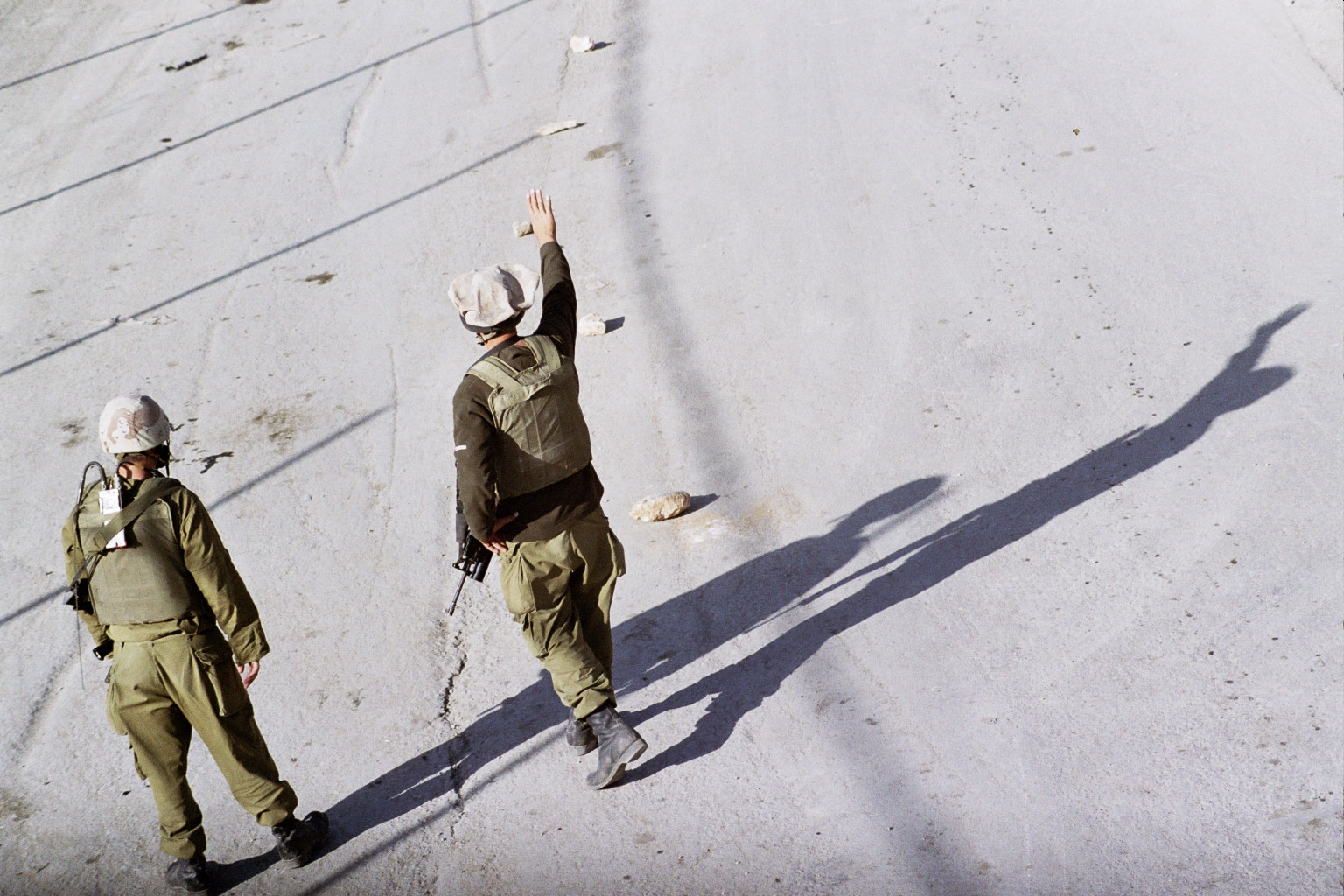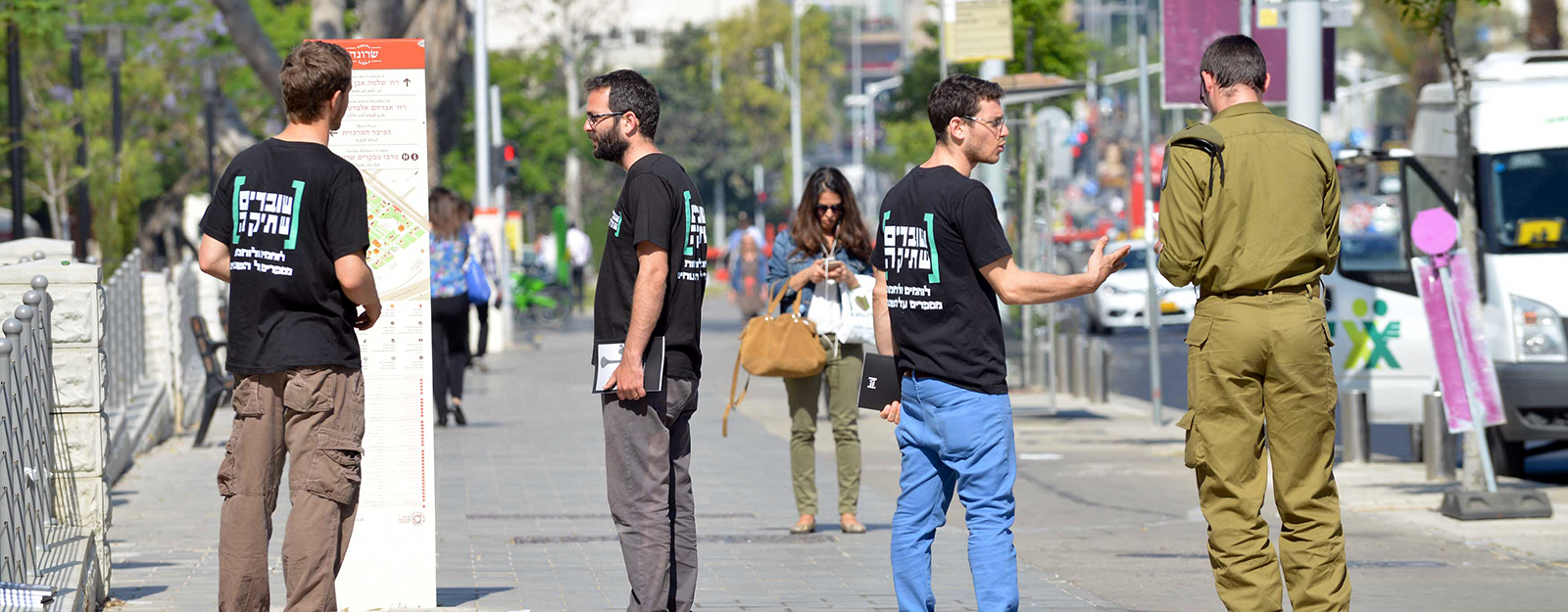Are you searching for something? Nothing, not searching, just looking. Because they had three bags and the house was pretty empty, they [the soldiers] allowed themselves to ask them to open the bag. “What’s in here, what’s in there?” We didn’t come with any previous information on weaponry, you don’t enter a house with weaponry like that. In the second house, there wasn’t anyone there. In the third house, we knocked and someone opens the door, middle of the night, turns on the light, he doesn’t understand what we want. The officer talks to him, tries to tell him. He says, “What did I do? What happened?” We tried to calm him down with hand gestures that everything is OK, that nothing happened. He’s tense, because ultimately, five soldiers show up at his doorstep with weapons, helmets, dressed in bulletproof vests. We moved their carpets, so as not to get them muddy. We are full of mud, a huge layer of mud on our legs. We dirty the place, even when we try to be clean. We were wet when we got into the house, his kid is crying, the woman is in the room, he brings his ID, gets photographed in the middle of the night. He’s really angry because he doesn’t understand what’s wrong and why it’s happening.
Are they only photographing him, or his wife too? Only men over 18 years old are photographed. [We] don’t photograph women or children. We reached another house, open the door, someone elderly, maybe 65, he’s also polite to us but afraid of us. He sleeps in a house that’s all plaster, no flooring yet, there’s nothing yet, and he has three kids, they’re crying. It’s a village that hasn’t produced any activity or anything hostile, there was no information, they just wanted to map it, to know what’s happening inside. The explanation they provided was that if they kidnap someone to one of the houses, then the Shin Bet will know what it looks like on the inside. The last house we went to – we knock on the door, knock on the door. No answer. Knock, knock, knock. After about 10 minutes of waiting, the blinds open. Someone around 33, 35 years old opens the window, she’s crying intensely, heartbreaking crying. She’s hysterical in the window, six men at the entrance to her home with weapons, helmets. It’s a private home so the window is about the height of my head; she’s not far from me. She opens the window and she’s shaking, and she’s crying, her nose is running. She’s hysterical. It’s 3:30 in the morning, we’re knocking violently at the door, her husband is a Palestinian police officer, he’s at work and she’s with her two kids, she’s crying; they’re hysterical and she refuses to open the door. He [the officer] tries to convince her to open the door but she won’t. He insists on opening the door. He radios the company commander, somehow gets to the point that she’s willing to contact her uncle. It’s 3:30 in the morning; she calls him because she refuses to open the door without someone else being present. They called him and woke someone else up in the village; he drove over from his house, her uncle. They went in and we left without anything, because we don’t photograph children or women and we didn’t take their ID’s or anything. A day later while eating lunch, we started talking about how it was unnecessary, that it was monstrous, and that we’re an army of monsters. What we wanted to do is photograph people and houses.
Was the goal to enter all the houses in the village? On the surface of it, it seems so to me. I don’t know what the order was exactly. People saw it as a mapping [operation] because they’re familiar with it as mapping, because it’s done all the time. The decision was on the command level, the response all the time was, “The brigade commander dropped the order,” the brigade commander of the area.









 testimonies
testimonies  media & content
media & content 










 They’re familiar with it as mapping, because it’s done all the time
They’re familiar with it as mapping, because it’s done all the time 

 terms of use & privacy policy
terms of use & privacy policy